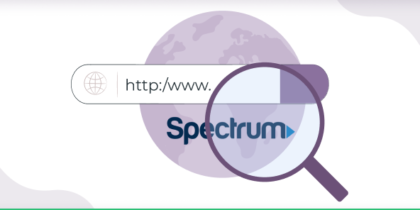Hackers do not discriminate! And that’s a BAD thing.
There used to be a time when hackers and cybercriminals considered it against their ethics to attack hospitals and other goodwill institutions. Sadly, times have changed and so have the principles and ethics of hackers around the globe.
A Massive Cyber Attack on Europe’s Largest Hospital, Fresenius:
Here’s the story
SNAKE Ransomware has been targeting high-end businesses by snooping into a business network, finding credentials, and encrypting data files. This is exactly what SNAKE Ransomware did to the business network at Fresenius Group. On May 5, Tuesday, a person working at Fresenius Kabi, a supplier of pharmaceutical drugs and medical devices in Europe, said that the company’s network experienced a cyberattack.
Later, it was known that SNAKE Ransomware was behind the intrusion, and they have already infiltrated many business conglomerates this year. Cyber attackers logged into the main network at Fresenius Kabi to access patient data and demanded to be paid in Bitcoin as it is untraceable.
Matt Kuhn, a spokesperson for Fresenius, said that the IT experts are struggling to get rid of a computer virus and using all the precautionary measures. Fresenius Kabi has put on hold many functions in the company until the investigating authorities and cybersecurity experts solve the issue.
You may not see the pattern but cyberattacks have increased since January especially on those healthcare facilities that are battling COVID-19 face-to-face. According to cybersecurity agencies, healthcare facilities that are combating the COVID-19 pandemic are at higher risk of malware attacks.
As cybercriminals are infiltrating hospital networks and stealing important digital files, this is a time for large medical facilities to become extra vigilant. Cybersecurity and Infrastructure Security Agency and the National Cyber Security Centre released a statement saying all healthcare facilities are on the verge of cyberattacks.
It is true that many ransomware attacks and data breaches are common. Most of the ransomware attacks are attempted with the intent to steal a ransom based on the installation of malware. True to their objectives cybercriminals are not afraid to publish private data of any organization if they fail to get money.
When it comes to SNAKE Ransomware, some cybersecurity experts are struggling to fight against it. SNAKE Ransomware is a bit different from previous ransomware attacks because it can take over major technological processes in an organization and control systems.
We have no clue whether Fresenius will pay cyberattackers any ransom or not. As Fresenius Group has previously given up to $1.5 million to get rid of a ransomware infection, the chance of paying SNAKE Ransomware attackers is highly likely. This is the biggest cyberattack on Fresenius Group as of yet so they need to address their security flaws or keep paying ransom money.
Previous Attacks on Hospitals
Attacks like these on hospitals are not new, and have been happening for quite a while now around the globe. Intel Security’s Advanced Research team identified around 24 known incidents of attacks on hospitals during the first half of 2016.
These figures are obviously less, considering that many hospitals prefer to keep such information secret in order to protect their reputation.
Earlier in 2016, the California-based Presbyterian Medical Center had to pay $17,000 in Bitcoins to cyber crooks to restore their access to their electronic medical systems, The Hacker News reported.
Back in April 2016, the MedStar Health chain, which runs a number of hospitals in the Baltimore and Washington area, was also attacked with a similar ransomware that encrypted sensitive data of the hospitals, as reported by The Hacker News.
Similarly, multiple hospitals in Lincolnshire, England, had to cancel hundreds of planned operations, outpatient appointments, and diagnostic procedures. The reason behind it was that the National Health Service (NHS) network had been compromised and could no longer be depended upon.
Reportedly, a major computer virus affected the NHS on October 30, 2016. In a bright red-alert warning labeled “Major incident” on its website, the Northern Lincolnshire and Goole NHS Foundation Trust (NLAG) said its systems in Scunthorpe and Grimsby were infected with ransomware, perhaps.
MAJOR INCIDENT – APPOINTMENTS CANCELLED.
A virus infected our electronic systems yesterday and a major incident has been called— NHS NLaG (@NHSNLaG) October 31, 2016
Who’s Responsible?
Hackers alone cannot be blamed for these attacks. Hospitals also have some blame to share. The cyber security conditions of hospitals are no doubt poor. Using legacy systems, a fragmented workforce, and inconsistent security all add up to become a recipe for disaster.
Since these attacks can affect medical machinery, protecting and cleaning them is more of a challenge compared to servers and workstations. Security is often not considered during the development lifecycles of these devices, creating easy leaks for hackers to compromise and exploit.
The importance of a VPN cannot be stressed enough in these circumstances. A premium VPN service, like PureVPN, not only provides anonymity but it also introduces a layer of security over the devices with DDoS protected VPN and networks of a hospital system, protecting them against malware and ransomware.



